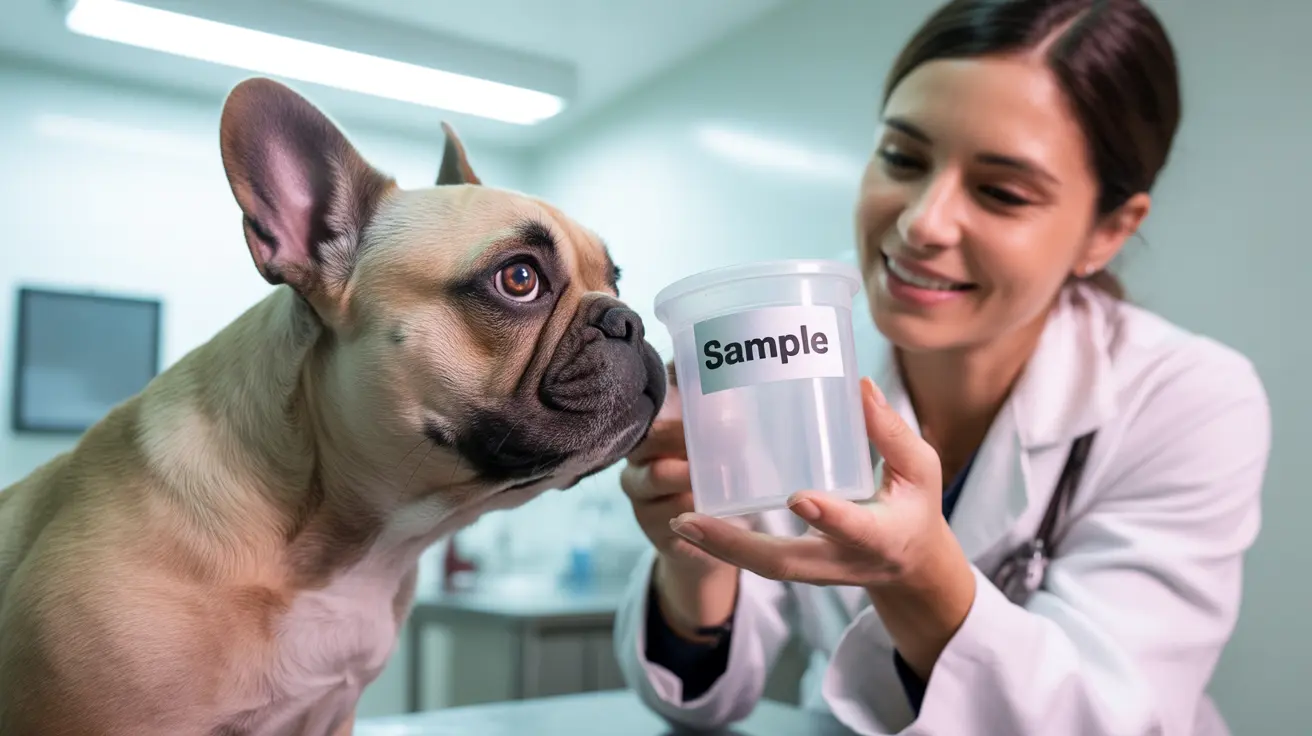Regular fecal testing is a crucial part of your dog's preventive healthcare routine. These simple yet powerful diagnostic tools help veterinarians detect intestinal parasites and infections before they become serious health threats. Understanding what fecal tests involve and why they're important can help you better protect both your pet and your family.
In this comprehensive guide, we'll explore everything you need to know about fecal tests for dogs, from collection methods to interpretation of results, ensuring you're well-informed about this essential aspect of canine healthcare.
Understanding Fecal Tests for Dogs
A fecal test for dogs involves analyzing a stool sample to detect the presence of parasites, their eggs, or other disease-causing organisms. These tests are particularly valuable because many parasitic infections show no immediate symptoms, allowing them to progress unnoticed without routine screening.
Different Types of Fecal Testing Methods
Fecal Flotation Test
This common testing method involves mixing the stool sample with a special solution that causes parasite eggs to float to the surface. The sample is then examined under a microscope, allowing veterinarians to identify specific types of parasites and their eggs.
Direct Microscopic Examination
Sometimes called a direct smear, this method involves examining fresh feces under a microscope to detect active parasites, particularly those that might be missed in flotation tests, such as Giardia.
Advanced Diagnostic Tests
Modern veterinary practices often employ specialized tests like ELISA or PCR testing to detect specific parasites or pathogens with greater accuracy.
When to Schedule a Fecal Test
Regular fecal testing is recommended in several situations:
- During puppy wellness visits
- At annual check-ups for adult dogs
- Before boarding or grooming appointments
- When gastrointestinal symptoms appear
- After adopting a new dog
Common Parasites Detected Through Fecal Testing
Fecal tests can identify various parasites, including:
- Roundworms
- Hookworms
- Whipworms
- Tapeworms
- Coccidia
- Giardia
Proper Sample Collection Tips
To ensure accurate results, follow these guidelines when collecting a stool sample:
- Collect a fresh sample (less than 24 hours old)
- Avoid contamination with dirt or grass
- Store the sample in a clean, sealed container
- Keep it refrigerated if you can't deliver it immediately
- Bring it to your vet as soon as possible
The Role of Fecal Tests in Preventive Care
Regular fecal testing serves multiple purposes in maintaining your dog's health:
- Early detection of parasitic infections
- Monitoring the effectiveness of deworming treatments
- Preventing zoonotic transmission to humans
- Ensuring proper growth and development in puppies
Frequently Asked Questions
How often should I have my dog tested for intestinal parasites using a fecal test?
Puppies should be tested multiple times during their first year, while adult dogs typically need annual testing. Dogs with high exposure risks (frequent park visits, multiple pet households) may need more frequent testing.
What types of intestinal parasites can a fecal test detect in dogs?
Fecal tests can detect various parasites including roundworms, hookworms, whipworms, tapeworms, coccidia, and Giardia. Some tests can also identify certain bacterial infections and viral diseases.
How do I collect a stool sample from my dog for a fecal test?
Collect a fresh sample using a clean, sealed container. The sample should be free from dirt and grass, and ideally less than 24 hours old. Keep it refrigerated until you can deliver it to your veterinarian.
Why is regular fecal testing important for maintaining my dog's health?
Regular testing helps detect parasites before they cause serious health issues, prevents transmission to other pets and humans, and ensures your dog's deworming protocol is effective.
What is the cost of a standard fecal exam for dogs, and how does it vary depending on the type of test?
Standard fecal exams typically cost between $40-$75, while more comprehensive testing may exceed $100. Costs vary based on the type of test performed and whether samples are sent to external laboratories.
Conclusion
Fecal tests for dogs are an essential component of responsible pet ownership and preventive healthcare. By maintaining a regular testing schedule and working closely with your veterinarian, you can help ensure your dog stays healthy and free from parasitic infections that could affect both their health and your family's wellbeing.






